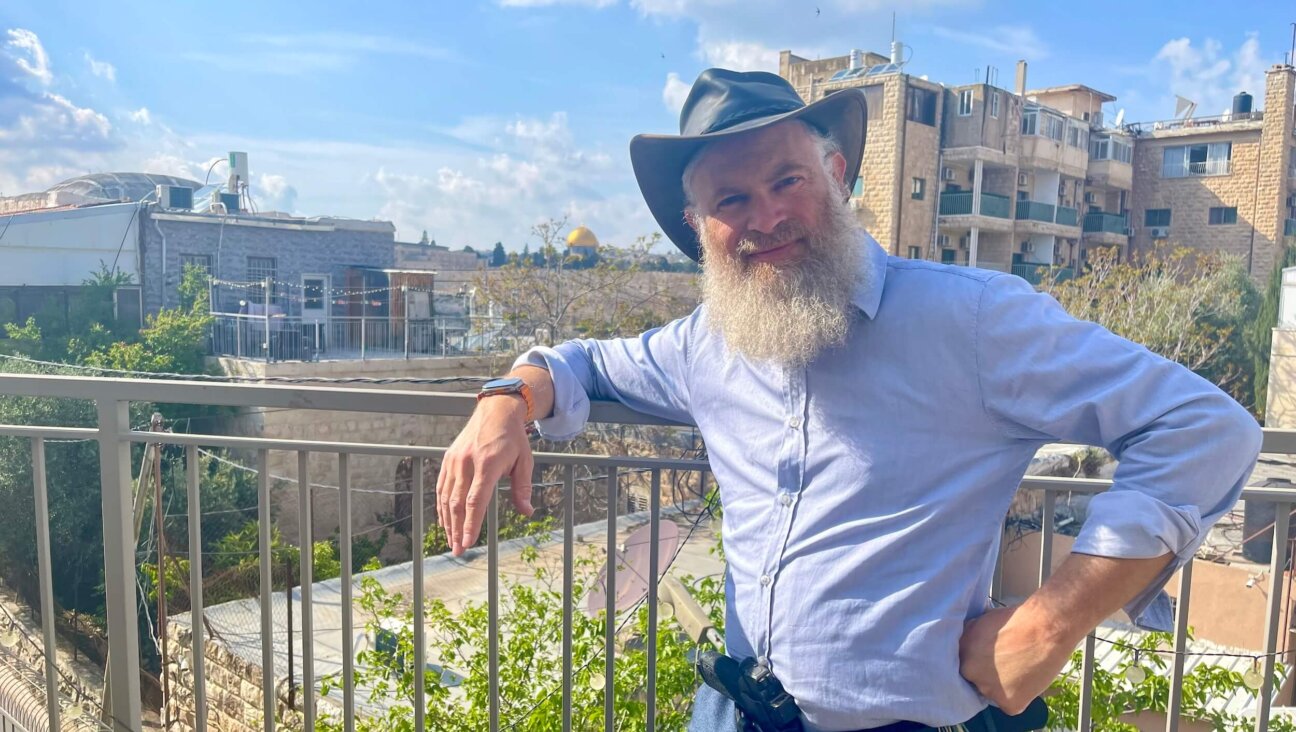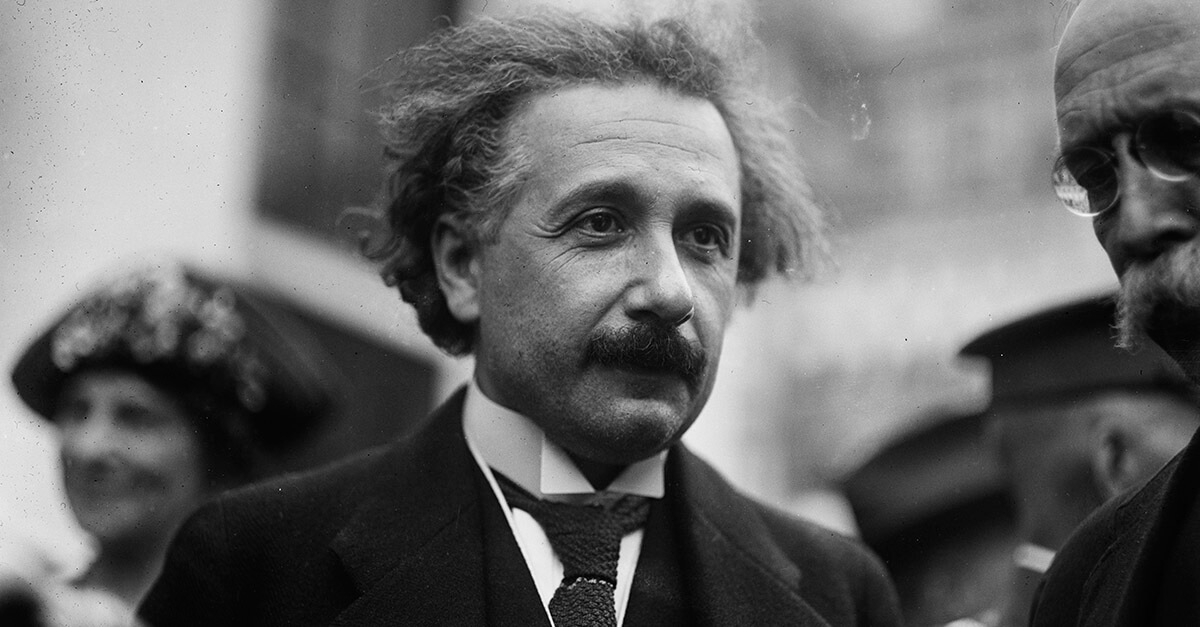Anti-Abortion Fringe Fires Debate Over Antisemitism
For four generations, Carol Speser’s family has been deeply rooted in Buffalo’s Jewish community and in the congregation at Temple Beth Zion, one of the city’s most prominent synagogues. Although her hectic schedule as a leader in the city’s gay and lesbian community leaves her little time to attend services, she still considers the shul to be a kind of home.
So it was no surprise that the synagogue was the first place she turned this month when word came that anti-abortion extremists — endorsed by the shadowy Army of God — planned to commemorate the 30th anniversary of Roe v. Wade with a demonstration in support of James Kopp. Kopp is the anti-abortion militant awaiting trial in Buffalo for the slaying, which he has admitted committing, of a local obstetrician, Barnett Slepian. Slepian was shot on a Friday night in November 1998, just after returning home from synagogue. Police had also warned that the protesters might also target the city’s gay community.
Still, it didn’t surprise Speser when the leaders of the congregation turned down her request to use the synagogue as a place to organize the gay community in a non-violent neighborhood watch — dubbed the Rainbow Peacekeepers — to patrol gay-owned businesses and gathering places while the protesters were in town. In fact, she says, she agreed with the decision.
“We didn’t want to be a lightning rod,” one synagogue official said of the decision, before adding that he didn’t want to be identified. “Carol understood that.”
While there is ample — though anecdotal — evidence of cross-pollination between extreme elements of the anti-abortion movement and racist and antisemitic elements of the far right, there has been little discussion of the trend within the organized Jewish community. Not in Buffalo and not in the rest of the nation, said Dallas Blanchard, a sociologist and author who has written extensively on the radical anti-abortion movement.
In some ways, he said, the silence of the organized Jewish community has been puzzling. “I’ve wondered about it,” he said, before rattling off a list of links between the two virulent right-wing movements. His list is topped by Eric Rudolph, the fugitive anti-abortion and white supremacist zealot who vanished into the North Carolina wilderness as authorities were closing in to arrest him in connection with a fatal bombing at Centennial Park in Atlanta during the 1996 Summer Olympic Games.
It’s not that there hasn’t been cause for suspicion since October 23, 1998, when Slepian was shot and killed by a round from a high-powered rifle which shattered his kitchen window and killed him just after he had returned home from Friday night services where he had said Kaddish for his father. In the four years leading up to Slepian’s slaying, four other abortion providers were wounded in locations near the American-Canadian border. All the attacks occurred on or around November 11, a date adopted by Canadian anti-abortionists as “Remembrance Day for the Unborn.”
Three of the four were Jewish, Canadian authorities have said. There is evidence that the gunman may have mistakenly believed that the fourth victim was a Jew as well, Canadian police have said. What’s more, a crowd of anti-abortion demonstrators targeted Slepian’s home in 1988 while his family was observing Chanukah.
And not long after Slepian’s slaying, a flier with a photo of his face crossed out and the words “Jew” and “killer” scrawled across it turned up in the restroom of a police station in nearby Ontario. An anonymous caller to a Hamilton, Ont. newspaper took responsibility.
The evidence was compelling enough that soon after the slaying, the Anti-Defamation League issued a report declaring that “a strain of antisemitism” had surfaced in the extreme fringes of the right-to-life movement. The report cited among other organizations Human Life International, a Virginia-based group which, according to the report, “has singled out Jews as disproportionately responsible for, even controlling the abortion rights movement.”
In a statement at the time, ADL national director Abraham Foxman said, “While there is no evidence to suggest that antisemitism was a motive for the attacks, we are deeply concerned about the strain of antisemitism running through some extreme factions of the movement.”
But in the years since, little attention has been paid to the possible antisemitic undercurrent in the extreme anti-abortion movement.
Just how little attention has been paid became clear this week when Jonathan O’Toole, a militant anti-abortion activist, announced plans to rally a small group of extremists to Buffalo to rally in support of Kopp. Kopp has admitted to the Buffalo News that he killed Slepian, but added that he believed the killing was justified.
According to Harold Litwin, chief of operations of the Buffalo Police Department, not a single Jewish leader contacted the department after news of the rally was announced. “I haven’t been contacted by anybody and I’ve talked to a lot of people about this,” said Litwin, who said his “ancestors are Jewish.”
He said the gay community — which has made much of the link between some of the three dozen or so activists who were scheduled to arrive in Buffalo and anti-gay and -lesbian extremists — have been the most vocal about expressing their concerns.
Officially, there has been no comment on the militant pro-life rally from the Jewish organized community. Even the ADL takes the position that the issue is much more about abortion than it is about Jews. “Dr. Slepian wasn’t killed because he was a Jew,” said Myrna Shinbaum, a spokeswoman for the organization. “He was killed because he was an abortion doctor who happened to be Jewish. It’s not that the people who are killing are per se antisemites out to kill Jews. These are people who are out stop abortions any way they can,” she said.
But privately, some Jewish leaders in Buffalo say they believe the issue goes far beyond the parochial.
The demonstrators, who in their organizers words are rallying in Buffalo to “show solidarity with Jim Kopp and his cause and to show that what he did was not only justifiable and defensible but a good action,” are mounting an assault against much of Buffalo, they say. It would be a mistake, they add, to make alleged antisemitism the issue. There are some in the Buffalo Jewish community who also suggest that suggesting a link between the militant anti-abortion movement and antisemitism could backfire, drawing attention to Jewish teachings that sanction abortion in some circumstances and putting Jews in jeopardy.
For his part, O’Toole, the organizer of the pro-Kopp rally, insists that his movement is not antisemitic. “I know people of Jewish descent,” he told the Forward. “One of my best friends is of Jewish descent and I talk about this with him all the time.”
In O’Toole’s view, the fact that four of the five providers shot in the region during the late 1990s were Jewish is just a statistical anomaly. Although no statistics are available on the race or ethnicity of abortion providers, O’Toole maintains that “statistically, and I don’t draw any conclusions from this…. there’s a disproportionate number of abortion doctors that are Jewish. I don’t draw any conclusions.”
To Speser, the gay activist whose roots go deep at Temple Beth Zion, O’Toole’s denials of antisemitism ring hollow. “Jews are aware of the connection,” she said.
But she also said that she can understand why the Jewish community, including her own congregation, has remained largely silent on the issue. “I understand. I agreed. We were concerned about the public visibility of holding a meeting at the temple. Because of the supposed threat and the history of violence…. We didn’t want to provide [them] an opportunity to kill two birds with one stone.”

I hope you appreciated this article. Before you go, I’d like to ask you to please support the Forward’s award-winning journalism this Passover.
In this age of misinformation, our work is needed like never before. We report on the news that matters most to American Jews, driven by truth, not ideology.
At a time when newsrooms are closing or cutting back, the Forward has removed its paywall. That means for the first time in our 126-year history, Forward journalism is free to everyone, everywhere. With an ongoing war, rising antisemitism, and a flood of disinformation that may affect the upcoming election, we believe that free and open access to Jewish journalism is imperative.
Readers like you make it all possible. Right now, we’re in the middle of our Passover Pledge Drive and we need 500 people to step up and make a gift to sustain our trustworthy, independent journalism.
Make a gift of any size and become a Forward member today. You’ll support our mission to tell the American Jewish story fully and fairly.
— Rachel Fishman Feddersen, Publisher and CEO
Join our mission to tell the Jewish story fully and fairly.
Our Goal: 500 gifts during our Passover Pledge Drive!























